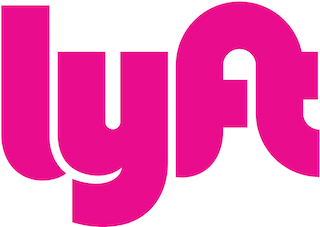
A Loyal Reader Writes:
“I’m launching a private radio creative services company. It’s the best way to do the quality work that I’m passionate about. Do you have any advice for someone who is venturing outside the radio industry and into a small business startup?”
Dan Replies:
Congratulations! You’re leaving radio, where you work 7 days a week, for the world of the self-employed, where you work 7 days a week.
Here are a few pieces of “off the top of my head” advice.
• Keep perfect financial records from the very beginning.
• Don’t accept clients who will make your life miserable.
• Know your rates in advance and have them in writing, so that when a prospect asks how much something will cost, instead of quoting a rate off the top of your head you’ll be able to say, “Well, let’s see….For X plus Y and also Z, the rate is….”
Whenever you try to quote a complex fee “off the top of your head,” you’ll quote a figure that is far too low.
It’s much better to say, “When I get back to the office I’ll crunch some numbers for you and see what it will cost.”
• Whatever you’re thinking of charging right now, double it.
We’re all afraid to ask for what we’re worth, and we hurt ourselves asking for less than we deserve.
• Don’t charge less than your usual rates due to another person’s saying:
A) “But we’re a nonprofit.”
B) “But we can’t afford more.”
C) “We only have $X budgeted….”
D) “We can’t afford your regular rates right now, but once the money starts rolling we’ll hire you for future projects at your full rate.”
E) “But that’s a lot higher than most of the others charge!”
“But we’re a nonprofit.”
“Nonprofit” doesn’t mean “no funds.”
It’s a tax classification, not an indication of their operating budget.
Does their Internet service provider give them a discount because they’re nonprofit?
Does their nonprofit status result in their paying less rent than other equivalent offices in the building?
Do they pay less for utilities, office supplies, coffee for the break room?
No.
“But we can’t afford more.”
Does that work for them at the car dealership?
“Gee, we think having a 2016 Lexus LS 600H as our company car would make a good impression on our corporate clients.”
“Excellent choice! Do you want to pay the $130,000 by check, or would you like to explore our financing options?”
“$130,000? But we can’t afford that!”
“I understand. Let’s take a look at some models that are within your price range…”
“But we want the 2016 Lexus LS 600H!”
“I believe the Rolling Stones have a song whose title addresses your situation…”
“We only have $X budgeted….”
What you charge for your services isn’t based upon what the prospect has budgeted.
People speak of their “budgets” as though they are naturally occurring phenomena over which they have no control.
In reality, a budget is simply a number that has been decided upon.
A budget = “The amount of money we’d like to spend.”
It’s not set in stone. It can be changed.
The first time someone pulled that “we’ve only budgeted this amount” routine on me, I fell for it.
It was at the beginning of my public speaking career, and I didn’t know any better.
I wanted to be “reasonable.”
I didn’t want to appear greedy. I mean, if they’ve only budget $X, how could I refuse? That’s all they had “in their budget.”
Shortly thereafter I realized, “Wait. That was a negotiating ploy. No matter what fee I quoted, the other guy would’ve asked if I could do it for less ‘because it’s outside their budget.'”
On a personal level, I’ve always resented that guy because he took advantage of my natural desire to be helpful.
Now I realize that for him it was just a negotiation, a game.
Since that first time, I don’t get upset when others attempt that tactic with me.
I don’t even blame them. They do it automatically.
When a radio station wants me to work with their air talents or an association wants me to speak at their conference but says my fee is outside their budget, my reply is:
“I understand. Maybe some other time you’ll be in better financial shape…”
You’d be surprised how often their “budget” s-t-r-e-t-c-h-e-s enough to include what I charge for my time & services.
“But So-And-So will do it for half that amount!”
Internally, my reply is, “If he could charge more, don’t you think he would?”
But what I say aloud is, “I’m sure you’ll be very happy with him.”
“We’ll hire you for future projects at your full rate.”
No, they won’t.
If the job should cost $2,000 but you agree to do it for $500 “just this one time,” you’ve established your value to them as $500.
If they ever do reach the point where they’re able and willing to pay $2,000, they’ll find a $2,000 company to do the job.
They’ll think, “Why should we hire a $500 company for a $2,000 job?”
“But that’s a lot higher than most of the others charge!”
That’s an excellent position to aspire to.
You don’t base your fees on what most of the others charge.
You base them on the value you deliver to the client.
My standard response:
“Oh, I know. In fact, I even offer a guarantee. If you can find anyone, anywhere who does what I do as well as I do it and charges more than I do, I’ll raise my rates to match his.”
• Final piece of advice: Don’t let anyone convince you there’s only one “right” way to run your business.
Including me.
 First, let’s listen to the radio commercial.
First, let’s listen to the radio commercial.




